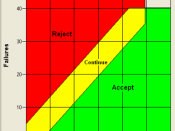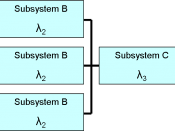Using/analysing sources-
Reliability needs to be worked out before usefulness
Reliability- accuracy & truthfulness
Although reliability & usefulness are linked, they are NOT interchangeable. Just because a source is considered unreliable it does not mean it is useful. Ie. Propaganda.
In fact its very unreliability may be what makes it so useful ie. Propaganda could hardly be regarded as reliable information, however it could be considered useful in showing mentality at that time.
3rd person/past tense in writing-
when trying to determine reliability ask yourself-
- how accurate is the source, how truthful is the source.
- Just because a source is primary DOES NOT mean it is more reliable than a secondary source.
Consider that-
1. a person involved in an event may be too close to it to write objectively about it.
2. a person writing sometime after the event may lose some memory of it
3. the person may not be in possession of significant details
A clue to a source's reliability may be found in their content, origin & audience.
Content-
Reliability if content determined by the content's accuracy & usefulness
Origin-
- name of person (author's identity, nationality, status)
- location from where information is taken (location of sources ie. Book, newspaper, diary)
- relationship of the author to the event. Was the author an expert on event. Does the position of the person make the source subjective.
- Date of the source
Audience-
- who is the source produced for
- was it made for publication
- private or public
- consider how the audience affects what information. What may & may not be included
- consider how the audience affects the accuracy of what is written
Motive- reason/purpose of writer in producing source
- motive is sometimes indicated by the tone...


